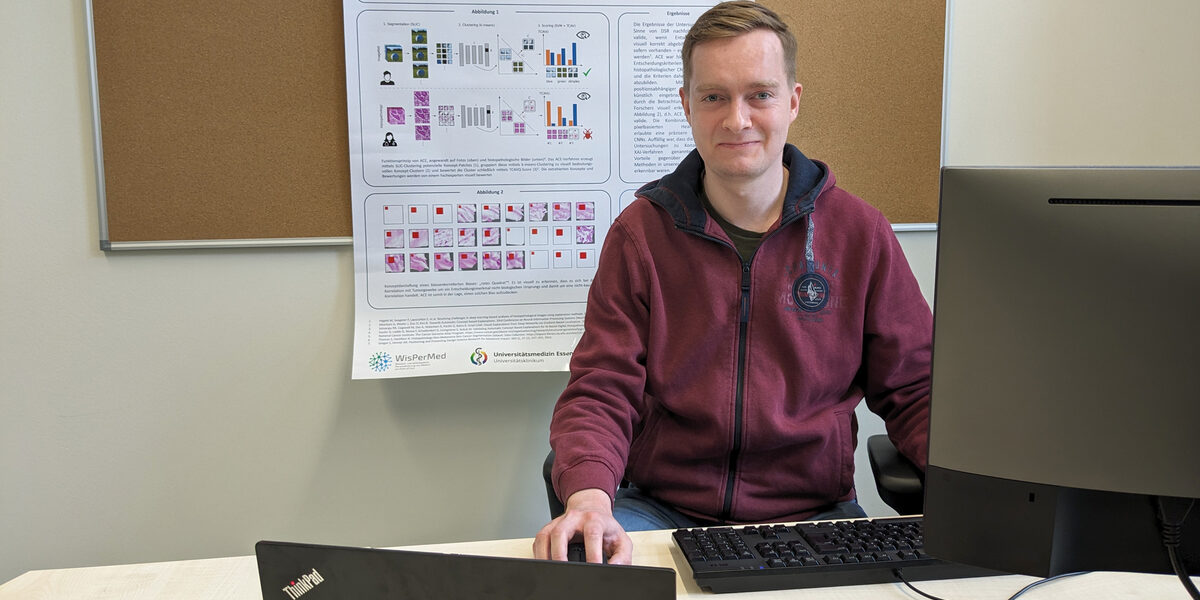Developments in medical informatics are as rapid as they are promising. In clinics and surgeries, digital patient files, robotic assistants and intelligent systems can support doctors in diagnosis, treatment and aftercare. Artificial intelligence (AI) is set to make healthcare more efficient and cheaper. But how can doctors be sure that the machine won't make mistakes? This is one of the questions Daniel Sauter is investigating at the Faculty of Computer Science at Dortmund University of Applied Sciences and Arts.
The doctoral student is in his final phase of the "WisPerMed" research training group. Researchers from the Faculty of Medicine at the University of Duisburg-Essen, University Medicine Essen and Fachhochschule Dortmund are working on interdisciplinary machine learning methods for the diagnosis and treatment of malignant melanoma. The 29-year-old was awarded a prize for young scientists for his work at this year's "Innovative Medicine" cluster conference of the Medizin.NRW network.
Technical challenges with AI applications
"I am mainly concerned with the technical challenges of AI applications in medicine," explains Daniel Sauter. In his doctorate, he is investigating how AI decisions can be made transparent and comprehensible. He is investigating whether existing explanatory methods for AI applications can also be used in dermatohistopathology, the fine-tissue examination used to diagnose melanoma. "With so-called black box algorithms such as neural networks, the AI's decision is not part of the programmed code," explains Daniel Sauter. Instead, the AI independently searches for correlations in the data and makes its decision based on this. "We have to understand this and crack the black box." The aim is to prevent misdiagnoses because the AI has recognized a pattern that sometimes has nothing to do with the cancer.
"The results of the investigations show that we were able to map the AI's decision criteria in concrete terms and that errors in the parameters were clearly shown," says Daniel Sauter, summarizing his work. This makes it possible to remove medically implausible decisions from the models. At the same time, Daniel Sauter is working on learning techniques for AI models - specifically for cancer diagnosis.
"Here, research is faced with the challenge that there is a certain lack of cleanly prepared training data," says the doctoral student. The digital preparation of tissue samples as a learning template for AI is time-consuming. That is why existing AI models are used. "They have already completed basic training, so to speak," explains Daniel Sauter. Part of his doctoral thesis is investigating how existing AI models can be "retrained" to recognize the special features of malignant melanoma.
Daniel Sauter's doctorate is being supervised by Prof. Dr. Markus Kukuk(Opens in a new tab) at the Faculty of Computer Science.
